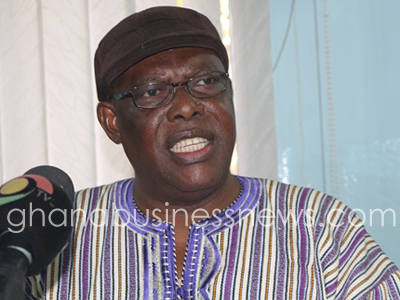NMC tells Graphic Group to live up to billing

The National Media Commission (NMC) has called on the Graphic Communications Group Limited to live up to its billing and begin the process of redefining the role and the future of the newspapers industry in West Africa.
Nana Kwasi Gyan-Appenteng, the NMC Chairman, said the Graphic had done it before; adding that “Graphic can set the pace once again, as it did nearly 70 years ago to set the newspaper industry in Ghana on a new course”.
He said the singular event that changed the cause of the newspaper business and elevated the status and practice of the press in Ghana was the establishment of the Daily Graphic in 1950.
He said the introduction of the Sunday Mirror as a Sunday sister paper of the Daily Graphic even raised the bar higher and created a new realm of quality news reporting in the country.
“The Daily Graphic and the Sunday Mirror set a benchmark for news quality that ever since then the word Graphic has become the generic word for newspapers,” Nana Gyan-Appenteng said on Monday at the induction of the Board of the Graphic Communications Group (GCGL) in Accra.
The nine member Board is under the Chairmanship of Professor Kwame Karikari, a journalism and communications expert, and the founding Executive Director of the Media Foundation for West Africa.
Other members of the Board include Mr Kenneth Ashigbey, outgoing Managing Director, GCGL; Ms Ajoa Yeboa Afari, Chairperson, Editors’ Forum of Ghana.
The rest are Mr Osei Afriyie and Dr Rita Larsen-Reindorf, Nana Otuo Acheampong, Dr Mawuli Adjei, Mr Mohammed Yusuf Twumasi and Mr Bismarck Emmanuel Badu.
Nana Gyan-Appenteng administered the oath of office to the new Board; however, Mr Osei Afriyie was not available to part take in the induction ceremony.
Nana Gyan-Appenteng said: “Today, the newspaper business both as a business and a format for the dissemination of news is facing its biggest challenge in several centuries. The certainties that we have taken for granted are fast disappearing.”
He said today, newspapers were at a disadvantage compared with other channels of communication.
“Newsprint is expensive, newsgathering is even more expensive, delivery of newspapers is not only expensive but incurs a carbon footprint that makes environmentally unfriendly, audience are declining, and newspapers are losing the prestige that it previously enjoyed,” he said.
Nana Gyan-Appenteng said newspapers in Ghana were fast losing the plot because they were unable to excite their audience.
“And, I am not referring to excitement through sensationalism and titillation. I am referring to speaking the mind of the people and speaking truth to power,” he said.
He said: “Today, newspapers are either too politically partisan or paralysed by timidity and fear of the owner or the state. Secondly, newspapers and many journalists have traded in their ethical and moral authority for personal and political gain.”
“The net result is that newspapers have lost the powerful voice with which they spoke with for centuries,” Nana Gyan-Appenteng said.
He urged the Board to position ethics at the centre of the work that goes on in the GCGL.
“As a company and as individuals we must strive to do the right thing at all times. We must choose to do what is right over what is wrong. The fact that we have done the wrong thing in the past does not justify doing the same thing again. This is the charge for the Board to keep,” he said.
Mr Ashigbey, who would be leaving the GCGL at the end of this October, expressed gratitude to the NMC for giving him the opportunity to serve the company and mother Ghana.
He said they were in the process of signing a memorandum of understanding with Mega Choice Network to start the Graphic TV project and that should be pursued.
Mr George Sarpong, the Executive Secretary, NMC, said the 1992 Constitution enjoins the NMC to insulate the state-own media from governmental control.
Prof Karikari lauded the stability of the GCGL as compared to other public service organisations and appealed to the management and staff of the Company for their cooperation with the Board to enable them deliver on their mandate.
Prof Omane Antwi, immediate past Board Chairman, GCGL, said one of the challenges facing the Company was the huge indebtedness of metropolitan, municipal and district assemblies in terms of newspapers supplied to them and their placement of adverts in the newspapers.
He called on the new board to pursue an aggressive Digital Media Strategy, which would ensure engagements with the youth and attain market leadership in audience share within the digital media space with a profitable business model.
Source: GNA
